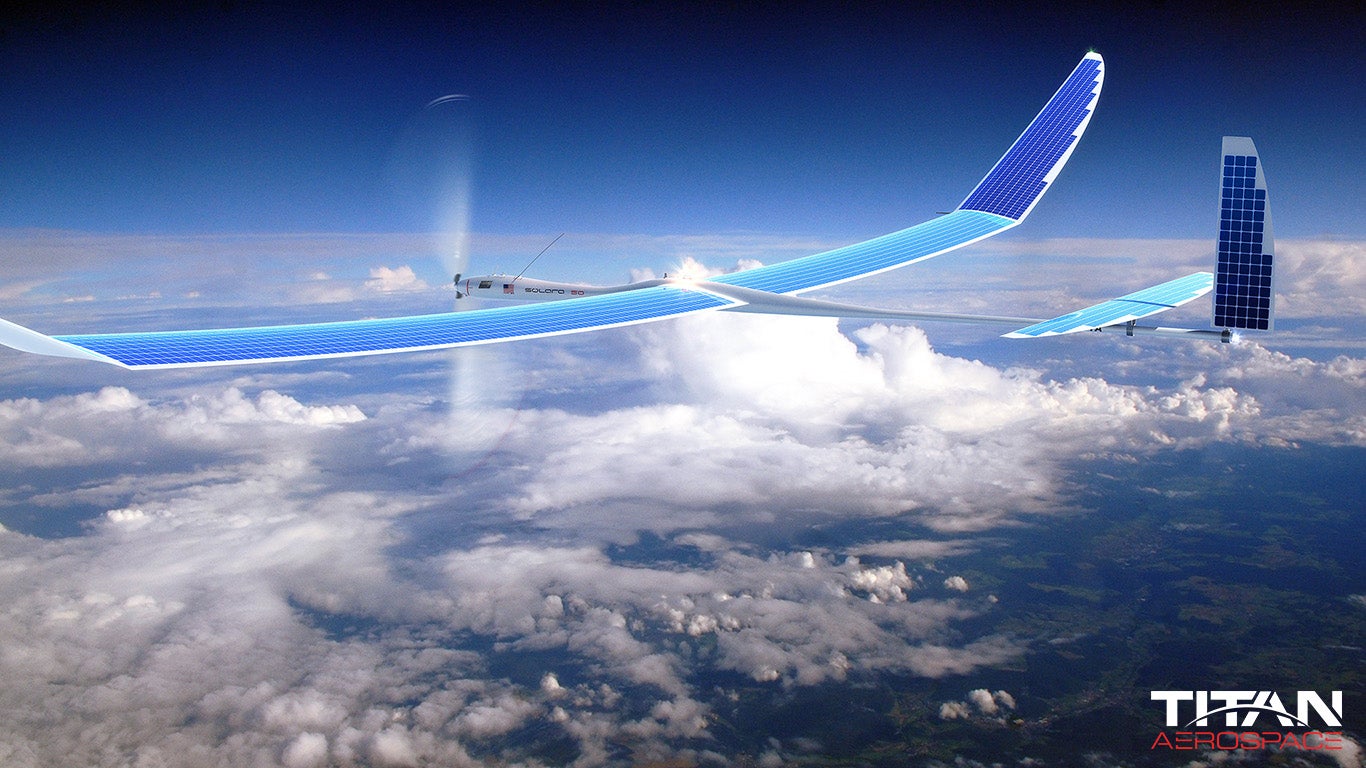Google buys solar-powered drone manufacturer Titan Aerospace
New Mexico-based company builds 'atmospheric satellites'; aircraft that fly as high up as 12 miles and that can stay aloft for 5 years without support

Google has acquired Titan Aerospace, a manufacturer of solar-powered drones that Facebook had previously considered buying.
Aircraft built by the New Mexico-based company can stay aloft for years at a time at an altitude that places them above the turbulence affecting traditional aircraft. Google has said it will use the technology to collect images of Earth as well as provide internet access to remote areas of the world.
Reports from the Wall Street Journal say that Google promised to top any offer from rival Facebook. The social network was presumably unperturbed, announcing this March that it had instead secured a team of drone-related engineers from Nasa and Somerset-based aerospace company Ascenta.
Both companies are hoping that these “high altitude long endurance vehicles” (also known as ‘atmospheric satellites’) will be key to connecting new users and potential customers to the internet, although the as yet unproven technology could also have many other benefits.
In a statement published on its website Titan Aerospace said that it was “still early days” for their atmospheric satellites but that there were a “lot of ways that we think we could help people, whether it's providing internet connections in remote areas or helping monitor environmental damage like oil spills and deforestation.”
Google previous efforts in this sector have included Project Loon, an initiative launched in 2013 to use weather balloons to deliver internet access. Bill Gates later criticized the scheme, saying that the company should used its wealth to deliver more tangible benefits.
“When you’re dying of malaria, I suppose you’ll look up and see that balloon, and I’m not sure how it’ll help you,” said the Microsoft founder in an interview with Businessweek.
Google has not disclosed the price it paid for the 20-strong Titan Aerospace team. The company has said it is expecting "initial commercial operations" to begin 2015. The smaller of its two aircraft, the Solara 50, has a wingsan slightly larger than that of a Boeing 767 and the company has previously promised to deliver internet speeds of 1 gigabit per second - significantly above the average in even developed countries.
Read more on solar panels
Subscribe to Independent Premium to bookmark this article
Want to bookmark your favourite articles and stories to read or reference later? Start your Independent Premium subscription today.

Join our commenting forum
Join thought-provoking conversations, follow other Independent readers and see their replies